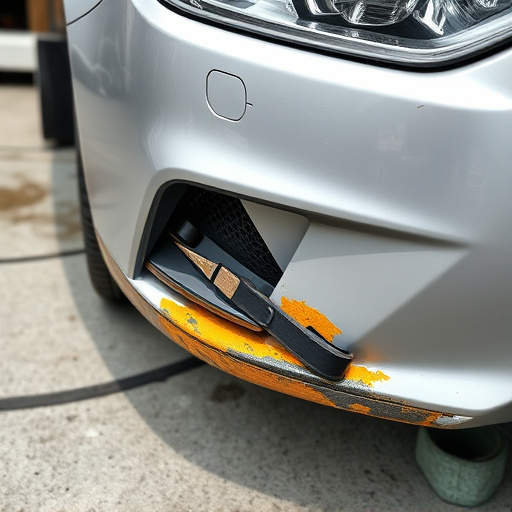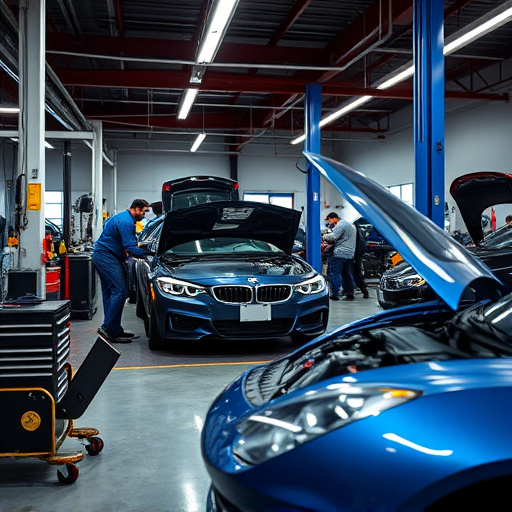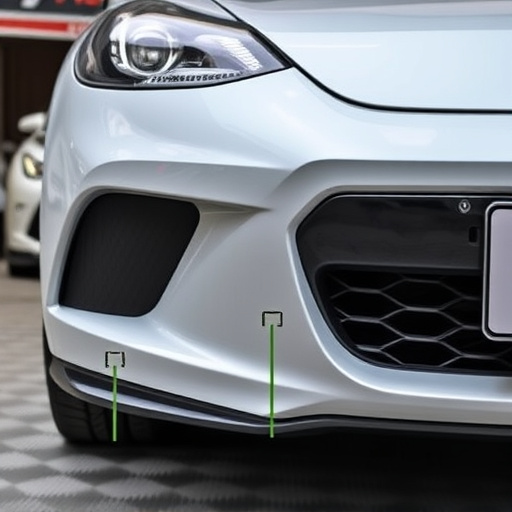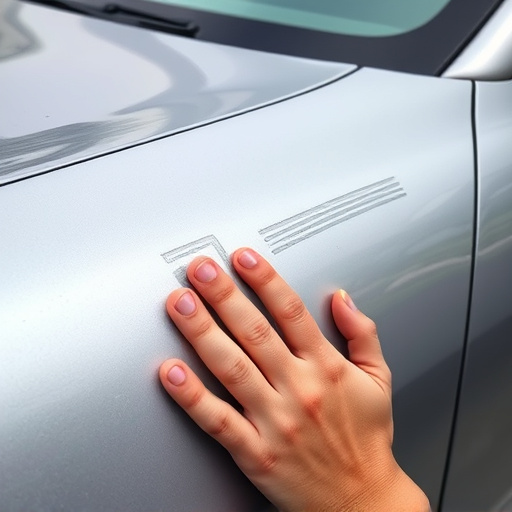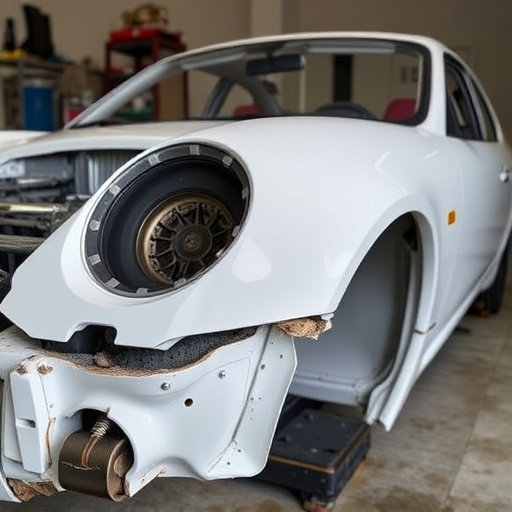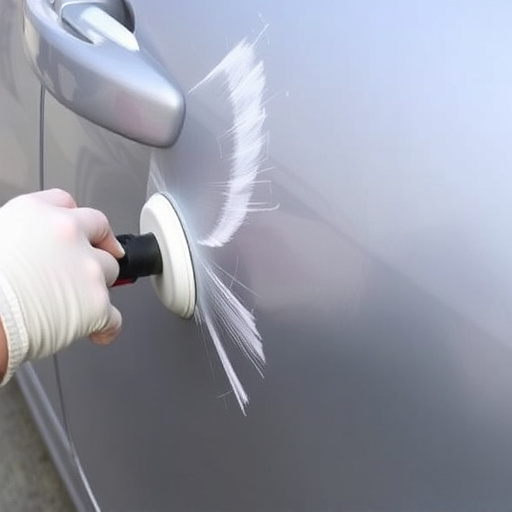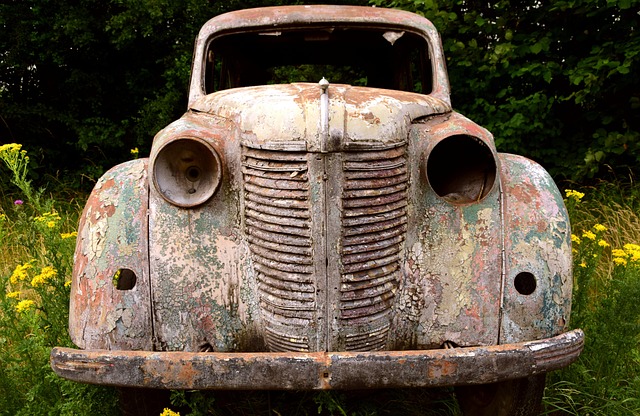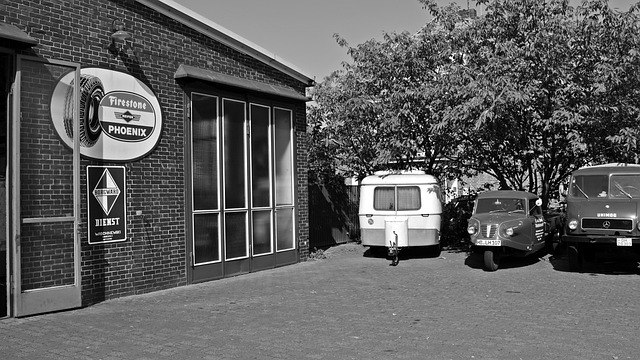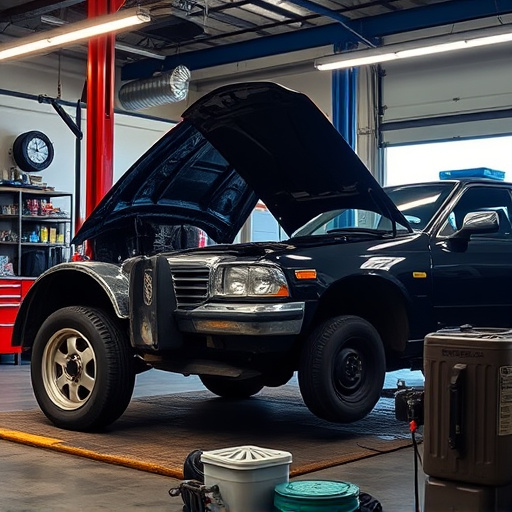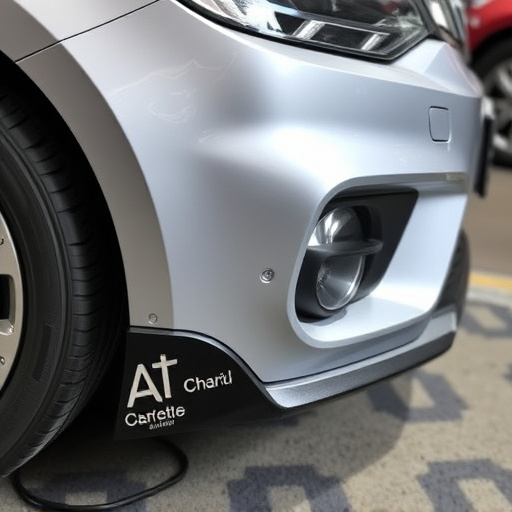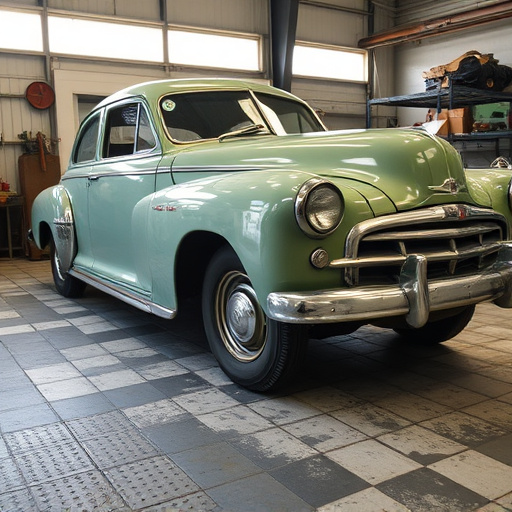Corrosion is a significant issue for hybrid vehicles due to their complex systems and environmental exposure. Anti-corrosion materials are crucial for protecting parts, delaying corrosion, and extending lifespans. Advanced coatings and self-healing materials offer long-term reliability, aesthetic benefits, and reduced maintenance needs. The demand for durable anti-corrosion solutions grows with hybrid vehicle technology advancements, providing eco-friendly, cost-effective care for enhanced performance.
In the realm of hybrid vehicles, where efficiency meets innovation, understanding corrosion’s impact is paramount. As these vehicles navigate diverse environmental conditions, protecting their intricate systems from rust and decay becomes a critical task. This article explores the essential role of anti-corrosion materials in preserving hybrid vehicles’ longevity and performance. From combating corrosion’s subtle effects to embracing cutting-edge innovations, we delve into strategies that ensure these advanced machines remain reliable for years to come.
- Understanding Corrosion in Hybrid Vehicles
- Advantages of Anti-Corrosion Coatings
- Future Trends: Innovations in Anti-Corrosion Materials for Hybrids
Understanding Corrosion in Hybrid Vehicles
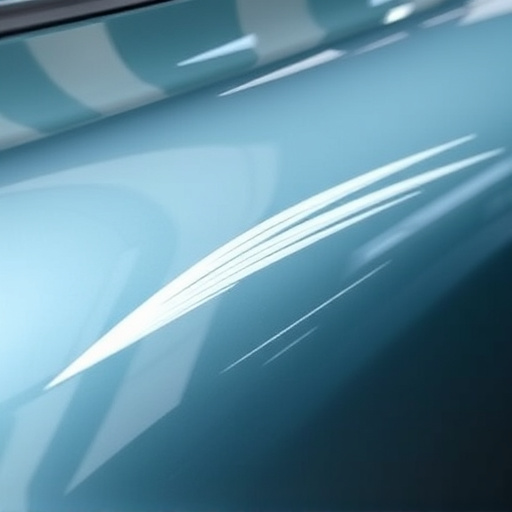
Corrosion is a significant challenge for hybrid vehicles, largely due to their complex systems and components that are constantly exposed to varying environmental conditions. Unlike traditional vehicles, hybrids have electric motors in addition to internal combustion engines, which can lead to unique corrosion hotspots. Moisture, salt, and pollutants from the environment can accelerate corrosion of metal parts, particularly in areas like wheel wells, battery packs, and electrical connectors. Regular car repair shops and auto maintenance facilities often report higher corrosion-related issues in hybrid vehicles compared to conventional cars.
Anti-corrosion materials play a critical role in mitigating these challenges by providing an extra layer of protection for hybrid vehicle components. These materials are designed to withstand harsh conditions, delay the onset of corrosion, and extend the lifespan of various parts. By adopting anti-corrosion solutions, auto repair shops can reduce the frequency of repairs and maintenance, thereby enhancing the overall reliability and cost-efficiency of hybrid vehicles over their lifetime.
Advantages of Anti-Corrosion Coatings
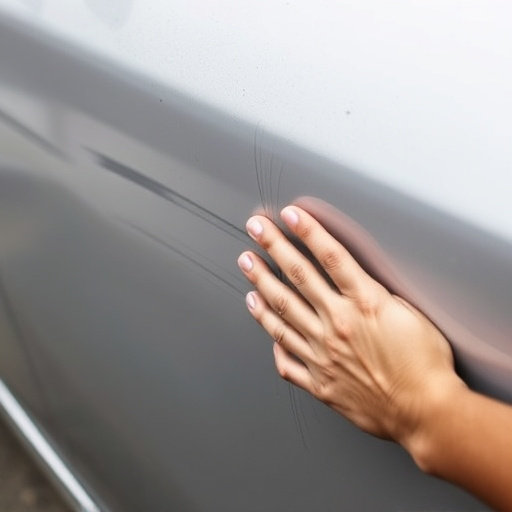
Anti-corrosion coatings offer significant advantages for hybrid vehicles, especially when considering their long-term reliability and performance. These advanced materials are designed to protect against the detrimental effects of moisture, salt, and other environmental factors that can accelerate corrosion. By applying these protective layers, auto body repair specialists can significantly extend the lifespan of vehicle components, reducing the need for frequent replacements or costly fleet repair services.
Moreover, anti-corrosion coatings enhance the overall aesthetics of hybrid vehicles. They provide a smooth, durable finish that not only looks appealing but also protects against chips, scratches, and other damage, especially during the initial stages of car dent repair. This added layer of protection contributes to the vehicle’s resale value and ensures that it maintains its vibrant appearance over time, even in challenging conditions.
Future Trends: Innovations in Anti-Corrosion Materials for Hybrids
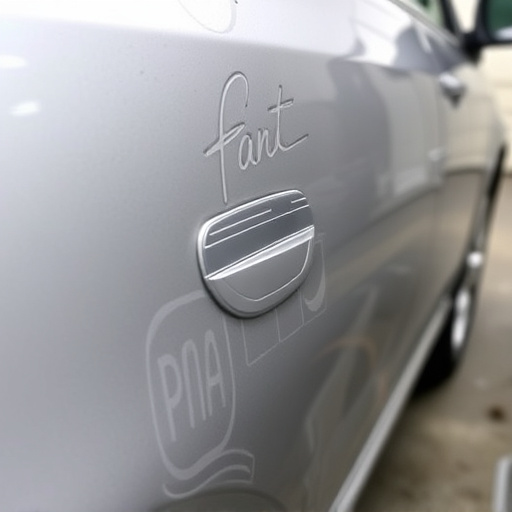
As technology advances, the demand for longer-lasting and more reliable anti-corrosion materials in hybrid vehicles is on the rise. Researchers and manufacturers are constantly exploring innovative solutions to meet this growing need. One promising trend is the development of advanced polymer coatings that offer superior protection against rust and corrosion compared to traditional methods. These cutting-edge coatings can be applied to various components, from car bodies to electrical systems, ensuring a longer lifespan even in harsh environmental conditions.
Additionally, the integration of self-healing materials is another exciting direction. Scientists are creating composites that can automatically repair minor scratches or cracks, extending the anti-corrosion benefits and reducing the need for frequent car body repair, including scratch repair services. These future innovations aim to revolutionize hybrid vehicle maintenance by offering more sustainable and cost-effective solutions, addressing not just anti-corrosion but also overall vehicle care and performance.
Anti-corrosion coatings and materials play a pivotal role in ensuring the longevity and reliability of hybrid vehicles. By protecting against corrosion, these materials safeguard critical components, reduce maintenance costs, and contribute to the overall sustainability of eco-friendly transportation. As technology advances, ongoing research and development in anti-corrosion innovations will further enhance the durability and performance of hybrid vehicles, solidifying their position as a sustainable future of mobility.
